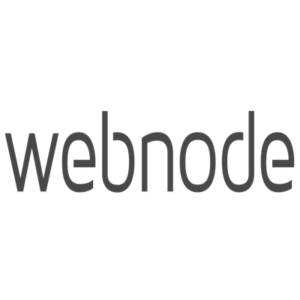
10+ WordPress Alternative & Similar CMS Platforms – 2024
Contents
[vc_row][vc_column][vc_column_text]WordPress is a content management system which is built in PHP programming languages. It lets you build websites on your own very easily. It was first released in the year 2003. Also, this platform is developed and distributed by the WordPress Foundation. The main feature is that it is an open-source as well as a free platform. Due to these qualities, the users will be able to access its source code without any problem.
It even allows you to make modifications in it as per your choice. Most importantly, it was created as only a blog publishing system at first. But, later on, a lot of features and functions were added to it. It provides support for MariaDB or MySQL database. So, you can easily store your website’s data. There are over 60 million websites all over the web listed on this platform. It is quite famous among the users.
Along with the above features, WordPress can easily be installed on your website. It will only take 5-minute to install and set it up. And, it will be ready to use. Moreover, it allows you to make different users within a single website. You can set the role of each user separately. There is another great feature that it has support for plugin-architecture. In this way, you will be able to add plugins for additional functionality. It has built-themes available. Some can be used for free while the others are needed to buy before using them. The user can even put customize CSS to have a personalized feel on the website.
List Of Best WordPress Alternative Software.
[/vc_column_text][/vc_column][/vc_row][vc_row][vc_column]
- Easy Setup with Cross-Platform Compatibility.
- Support for Multiple Templates and SEO Features.
- Free Plan contains Ads.
- Offers Cross-Platform Application with Intuitive User Interface.
- Support for Customizable Templates and SEO Settings.
- Lack of Option to Add Custom Content.
- User-Friendly Interface with Cross-Platform Application.
- Support for Third-Party Integration and Affordable Plans.
- Limited Customization Options.
- Intuitive and Friendly User Interface with Cross-Platform Application.
- Support for Built-In Templates and LayoutEngine.
- Little Bit Expensive.
- Intuitive User Interface with Flexible Layout.
- Support for Plugins and Multiple Languages.
- Plugins Need Work on PHP.
- Business Website.
- Personal Website.
- E-commerce Website.
- Intuitive and Simple User Interface with Free Website Options.
- Support for Custom HTML/CS Code and Multiple Basic Templates.
- Doesn't Offer Smartphone Application.
- Easy and Intuitive User Interface with Android Application Available.
- 24x7 Customer Support with Responsive Website Templates.
- Lack of Depth in Some Features.
- Modern and Sleek User Interface with Access Through Web.
- Support for Responsive Design and Statistic Reports.
- Doesn't Provide Any Mobile Application.
- Available over the Web and as Cross-Platform Application.
- Support for Multiple Templates and Custom Domain.
- Inconsistent Posts.
- Free Cross-Platform Application with Built-In Themes.
- Support For Social Networking and HTML Editing.
- Not Much Control.
- Simple and Intuitive User Interface.
- Support for Static Website and All Basic Functions.
- Can't Create Dynamic Website.
We hope you all like these WordPress alternatives. If you believe we missed any important alternative to WordPress software then don’t forget to share it with us. We will definitely review it and add that WordPress alternatives software into the list.

















